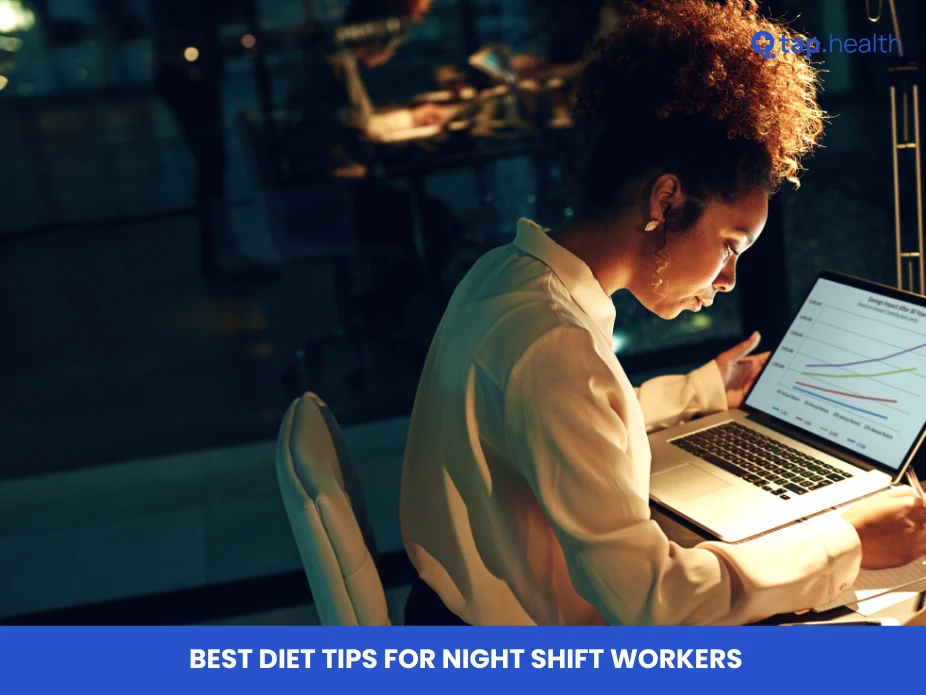Why Night Shift Workers Need Special Diet Strategies
Night shift work disrupts your circadian rhythm, messing with hormones like melatonin, cortisol, and insulin. This increases risks of fatigue, weight gain, insulin resistance, and type 2 diabetes. Smart eating counters these effects, keeps blood sugar stable, and sustains energy without crashes.
Top Diet Tips for Night Shift Workers to Stay Energized
Master Meal Timing for Night Shift Workers
Eat three balanced meals every 4-6 hours during your shift. Example schedule:
- Pre-shift: High-protein breakfast (eggs + veggies)
- Mid-shift: Light lunch (quinoa salad + chicken)
- End-shift: Small dinner (fish + greens) Consistent timing regulates metabolism and prevents overeating.
Choose Energy-Boosting Foods for Night Shift
Prioritize nutrient-dense whole foods:
- Complex carbs: Oats, sweet potatoes, brown rice
- Lean proteins: Turkey, tofu, salmon, beans
- Healthy fats: Avocado, almonds, chia seeds
- Fiber-rich produce: Spinach, berries, broccoli These release energy slowly, avoiding sugar spikes common in shift workers.
Hydration Hacks Every Night Shift Worker Must Know
Dehydration mimics fatigue. Drink 8-10 glasses of water per shift. Add cucumber, lemon, or watermelon for flavor. Skip sugary drinks that worsen insulin sensitivity.
Smart Caffeine Rules for Overnight Shifts
Limit to 200-300mg. Consume only in first half of shift (before 2-3 AM). Switch to herbal tea later to protect daytime sleep quality.
Best Snacks for Night Shift Workers
Keep portions small:
- Greek yogurt + berries
- Apple slices + almond butter
- Carrot sticks + hummus
- Handful of mixed nuts These curb cravings without bloating.
Real Success Stories: Night Shift Diet Transformations
Alex, ER nurse: Switched to timed protein meals → zero sugar crashes, sleeps 7 hours post-shift.
Samantha, security guard: Hourly water reminders + fruit snacks → 70% less fatigue, dropped 12 lbs in 3 months.
Research-Backed Facts on Night Shift Nutrition
NIH studies show night shift workers have 40% higher diabetes risk due to irregular eating. Harvard research confirms consistent meal timing reduces metabolic syndrome by 34%. European Journal of Clinical Nutrition proves hydration improves cognitive performance by 25% during night hours.
How Can TapHealth Help Night Shift Workers Manage Diabetes Risk?
TapHealth’s 24/7 virtual care platform connects night shift workers with doctors who understand shift-work diabetes challenges. Get instant prescriptions, blood sugar tracking, meal plans designed for overnight schedules, and A1C monitoring — all without waiting for morning clinics. Protect your health while working nights.
References
- National Institute for Occupational Safety and Health (NIOSH). “Shift Work and Health.” NIOSH
- Healthline. “The Best Diet for Night Shift Workers.” Healthline
- Mayo Clinic. “How to Manage Eating and Drinking on Night Shifts.” Mayo Clinic



